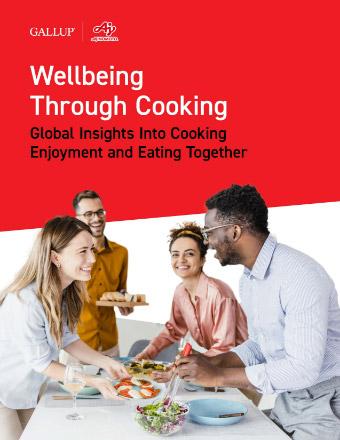A1.1 Survey Instruments
This survey was included as a module within the Gallup World Poll in 2022. Since 2005, the World Poll has regularly surveyed people in more than 160 countries using mixed methods of telephone and face-to-face interviewing. In a typical year, the poll results represent more than 95% of the world’s population aged 15 and older, using randomly selected, nationally representative samples.
A1.2 Translation and Quality Control
The questionnaire was translated into the major conversational languages of each country. The translation process started with an English, French or Spanish version, depending on the region. One of two translation methods may have been used. In the first, two independent translations were completed. An independent third party, with some knowledge of survey research methods, adjudicated the differences. A professional translator translated the final version back into the source language. In the second, a translator translated into the target language. An independent third party with knowledge of survey methods reviewed and revised the translation as necessary.
Core Gallup World Poll question translations remain consistent over time. Any new question items were translated according to the Gallup World Poll’s quality procedures. Interviewers were instructed to follow the interview script and may not deviate from the translated language.
A1.3 Sampling and Data Collection
All samples were probability-based -- meaning respondents were selected randomly -- and nationally representative of the aged 15 and older population. As all eligible landline exchanges and valid mobile service providers were included, the coverage area is an entire country, including rural areas. The sampling frame represents adults aged 15 and older with access to a phone (either landline or mobile). Gallup used random-digit dialing (RDD) or a nationally representative list of phone numbers.A1.4 Data Weighting
Gallup weights World Poll samples to correct for unequal selection probability, nonresponse, and double coverage of landline and cellphone users when using both cellphone and landline frames. Gallup also weights its final samples to match the national demographics of each selected country. The margin of error for each sample reflects the influence of data weighting. In addition to sampling error, question wording and practical difficulties in conducting surveys can introduce error or bias into the findings of public opinion polls.
